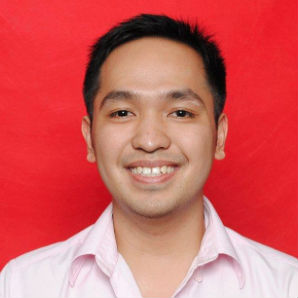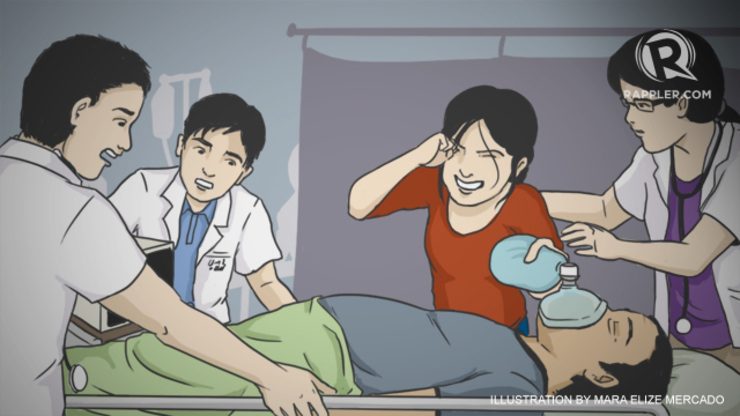SUMMARY
This is AI generated summarization, which may have errors. For context, always refer to the full article.
 I remember him. Gasping for breath, lips blue from the lack of oxygen, dying with each second. He was brought in by his daughter, and decked to my care by the Emergency Medicine service. I was a 2nd year Internal Medicine resident at the Philippine General Hospital.
I remember him. Gasping for breath, lips blue from the lack of oxygen, dying with each second. He was brought in by his daughter, and decked to my care by the Emergency Medicine service. I was a 2nd year Internal Medicine resident at the Philippine General Hospital.
A quick history and physical exam pointed to a block in a major artery supplying vital nutrients and oxygen. This obstruction was built up over time, accelerated by a life of vice and excess.
He was a 42-year-old engineer who got married fresh out of college, with 2 children in their teens. He had no insurance, and had no life savings. He just paid a huge sum of money to finance payments for his home and his kids’ tuition. He was supposed to leave for the Middle East next week, but here he was, his life hanging in the balance.
My medical team immediately gathered around the patient. All around were beeps, sighs, and moans of an emergency room sweltering from a damaged air-conditioning system. My mind flashed back to my memory of being a medical student, touring the same facility a few years ago, excited to rotate here and save patients’ lives. I realized I saw the same zeal in my team’s eyes as they rushed to resuscitate this patient from a heart attack.
Within 30 minutes, a cardiac monitor showed a regular rhythm, marred by textbook features of a serious assault on the heart. The patient’s daughter was tasked to “bag the patient” – to manually pump air in and out of her dad’s lungs – as we waited for the ventilating machine’s arrival. One of my interns patiently explained the procedure of bagging, stressing that her father’s breath was literally in her hands.
As per protocol, we offered to send the patient to our specialized cardiac unit to restore blood flow in the diseased artery. The patient’s wife, distraught and confused about all the rapid events, begged off.
“Dok, wala po kaming pera. Gamot nalang po.” (Doc, we have no money. Can we just use medicine?)
Despite heavily discounted laboratory tests and medications, this family couldn’t afford a life-saving procedure. They had to settle for second-line treatment. The patient was transferred to the intensive care unit 10 hours later.
Passion to save lives

Back at the emergency room, my interns, barely rested from the rush of an acute coronary event, now fuss over another patient with chronic kidney disease, and another patient with a decomposing diabetic foot. It was a constant cycle in the hospital.
As we sat down to eat lunch (is it still lunch if it was eaten close to midnight?), we chatted about life’s small things. We tried to keep things light, to balance out the mini-crises that happen every day, trying to ignore the despair.
But I was wrong.
Our conversation turned to our engineer with a heart attack. One of my interns started relating how she had to substitute the patient’s daughter who was exhausted manually bagging her dad. The daughter just broke down. The interns had to take turns doing the bagging.
Another intern talked about how he needed to shell out a considerable amount to cover the patient’s emergency medications. After all, the patient came in with no money; these medications would save his life.
A third intern talked about how she had to help the family find a stretcher, since all the emergency room’s stretchers were occupied. They eventually found one in a corridor behind the ER.
I wanted to ask them how they could do all of that, despite the number of consults and admissions we had…but I realized that I already knew the answer. I knew because I’ve done all of this before.
On remembering
I remember him. His name was Marcos Dela Fuente*. He was an electronics and communications engineer. He is survived by his daughters Therese, and Micha (the bagger), and his wife Yolly. He is one of millions of Filipinos who seek healthcare. But instead of the burden of disease being lifted from them, Filipinos like him are weighed down by the shackles of poverty.
Therese came to my clinic 4 years later, saying she did her best to track me down. With the passing of her father, she had to quit her studies and become a call center agent. She’s barely earning enough to support her younger sister through college. Being a really smart woman, she memorized our names and faces. She visited to thank me and the rest of the team for all our efforts. Not a few tears fell throughout her story, but I felt really happy. I knew we were doing something right.
As a consultant at UP-PGH, I find myself marveling at the dedication and compassion of our doctors, nurses and medical staff. Even in training, we blind ourselves to our own discomfort. We make sacrifices that slowly eat away at our personal lives, hoping that things will get better, that something will be left for us.
I also marvel at how much each one of us can put up with, how much our patients can tolerate, how much we Filipinos can endure, until we rise up and demand more. The nation is at a breaking point.
But for all the reminders to be compassionate and understanding, there’s one thing we forget about our patients: They remember, too.
That’s what makes it all worth it. – Rappler.com
*Consent was procured from the Dela Fuente family before names were published.
Dr Adrian Paul J. Rabe graduated in 2007 from the INTARMED program of the UP College of Medicine (UPCM). Dr Rabe was the youngest to pass the Philippine Medical Licensure Exam, and the Philippine Specialty Board of Internal Medicine. He is now a clinical associate professor of the Departments of Physiology and Medicine in UPCM, and a consultant at the UP-Philippine General Hospital. He is President of the Philippine College of Physicians Manila Chapter, and Medical Director of Clinics of the QualiMed Health Network.
For more stories about #CompassionInPGH, please visit the website of UP Medics, the official publication of the UP College of Medicine. You may also get in touch with us through Twitter (@upmedics) or through our FB Page (UP Medics). If you have your own #CompassionInPGH story, send them over to upmedics@gmail.com with “#CompassionInPGH” as the subject.
Add a comment
How does this make you feel?
There are no comments yet. Add your comment to start the conversation.